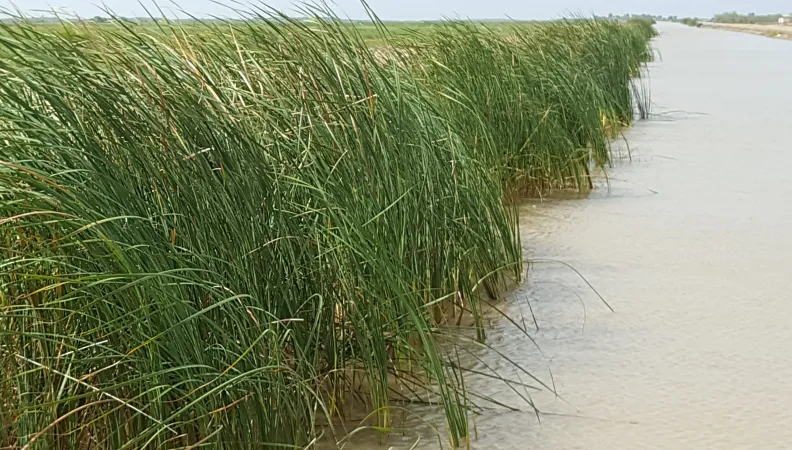Share the page
Typha, an Invasive Reed as a Renewable Fuel and Eco-Material (TYCCAO)
Project


-
Project start date
-
Status
In progress
-
Estimated date of project termination
-
-
Project financing date
-
-
Financing duration
-
5 years
-
Type of program
-
FFEM
-
Global financing amount
-
17147000 €
-
FFEM financing amount
-
1500000 €
-
Project lead member institution(s)
-
French Ministry for Ecological and Inclusive Transition
-
Country and region
-
Senegal, Mauritania
-
Type of financing
-
Partners
-
EU
-
Beneficiaries
-
Agence de l’Environnement et de la Maîtrise de l’Energie (ADEME)
-
Type of beneficiary
-
Non-financial public or parastatal company


The Typha Combustible Construction West Africa (TyCCAO) project contributes to the energy transition and the fight against climate change by promoting the use of renewable biofuels and energy efficiency in the construction sector. It does so through the scaling up and dissemination of products made from typha, an invasive reed that is proliferating in the Senegal River Basin.
Context
Senegal and Mauritania, like most sub-Saharan African countries, face two crucial energy challenges: energy demand for development, and climate change, to which these countries are particularly vulnerable.
In Senegal, as in Mauritania’s border zone, one wild plant with particularly interesting energy properties may help address these issues: typha. Making use of typha enables the stemming of its spread in the Senegal River basin, which is currently a concern for public health, water supply, and biodiversity maintenance in the area.
Structuring a cross-border industry for processing typha will help to supply a combustible raw material for energy production, as well as an insulation material for construction.
Description
The TyCCAO project is structured around four components:
- Understanding and managing the resource: in order to control the risks of invasion and ensure the optimal value is recovered, it would appear essential to improve our knowledge of how Typha australis behaves and to map its development in the environment. This feeds into the development of a management plan for exploiting typha , as well as the structuring and sustainability of the value chain;
- Typha’s value as fuel: supporting entrepreneurs in the setting-up of 3 industrial units for charcoaling typha, together with the creation of an expertise and training hub intended to evolve skills in alternative fuels;
- Typha’s value as energy-efficient construction material: the development of construction materials incorporating typha, responding to the needs of various new and renovation construction markets, is being pursued as part of the project. This component offers support to public policies to encourage ecoconstruction practices at local and national level;
- Training and awareness-raising: this essential step disseminates the skills and practices necessary to the roll-out of the industries in a sustainable way.
Outcomes
- Implement of a joint management plan for exploiting typha within the cross-border zone between Senegal and Mauritania, which is threatened by the invasion of typha;
- Improve and mechanising the initial stages of exploitation of typha (cutting, drying);
- Structure a viable industrial sector for the production of typha charcoal;
- Make the charcoal industry self-sufficient through staggered defunding from Senegalese and Mauritian entrepreneurs;
- Pursue the development processes for typha-based construction materials;
- Support the finalisation and implementation of Senegal’s regulation on thermal efficiency and development of a similar regulatory approach in Mauritania;
- Disseminate and scale-up of practices for the implementation of typha-based biosourced materials, through the training of those involved in the sustainable energy and construction sectors (designers, tradespeople).
Learn more
Evaluation summary of The TyCCAO
Sustainable Development Goals
ODD12 Responsible consumption and production

ODD13 Climate action



